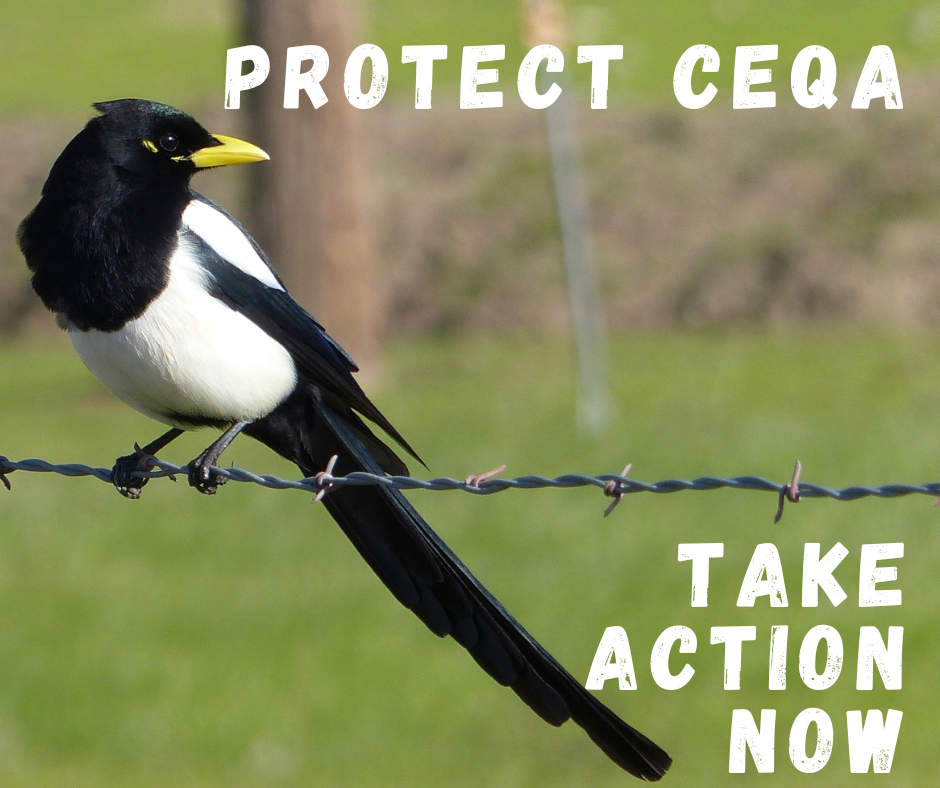Action Alert: Don't Repeat Fairchild toxic history by the Bay: Fix SB 131 to Protect Communities, Wildlife, and California’s Future
California’s environmental protections are under attack. In June, the legislature rushed through SB 131, a sweeping rollback of the California Environmental Quality Act (CEQA) — our state’s foundational law for public input, transparency, and environmental review.
Why this matters
Silicon Valley knows all too well the dangers of unchecked “advanced manufacturing.” Fairchild Semiconductor’s toxic plume poisoned San José groundwater for decades, leaving behind one of 23 Superfund sites in Santa Clara County — the most in the nation. At Lehigh Cement in Cupertino, mercury and selenium polluted air and water for years before action was taken. These disasters happened because oversight came too late.
Now, SB 131 threatens to repeat these mistakes by:
Exempting “advanced manufacturing” projects (including semiconductor plants, lithium recovery, plastics incineration, fertilizer plants, aerospace production, and more) from CEQA review.
Excluding critical habitats for endangered and rare species from protection, undermining California’s 30x30 conservation goals.
Silencing communities by stripping away the public’s right to know about and weigh in on toxic projects near homes, schools, and natural lands.
Without CEQA review, endangered species like California condors, mountain yellow-legged frogs, and gray wolves lose vital habitat protections — and frontline communities lose safeguards against toxic pollution.
The good news: its not too late (if we act)
Legislative leaders promised a cleanup bill this session to fix SB 131’s worst flaws — but they will only act if they hear from us now.
In Santa Clara County, Senators Becker and Cortese, and Assemblymembers Ahrens, Lee, and Berman voted for SB 131 - they especially need to hear from constituents.
PLEASE Make three quick calls today.
1. Call your State Senator
Senator Dave Cortese (District 15)
Capitol Office Phone: (916) 651- 4015 Senator Dave Cortesesenate.ca.govSenator Josh Becker (District 13)
Capitol Office Phone: (916) 651- 4013
Ask them to sign onto Senator Blakespear’s cleanup letter (via Brynn.Cook@sen.ca.gov).
2. Call your Assemblymember
California State Assembly
Assemblymember Marc Berman (District 23)
Capitol Office Phone: (916) 319-2023Assemblymember Alex Lee (District 24)
Capitol Office Phone: (916) 319-2024Assemblymember Patrick Ahrens (District 26)
Capitol Office Phone: (916) 319-2026
Ask them to join the SB 131 cleanup letter, now open to Assembly Members.
3. Call Senate Pro Tem Mike McGuire at (916) 651-4002
Thank him for promising to fix SB 131, and urge him to honor his word before the session ends September 12.
Suggested words:
“Please follow through on your commitment to fix SB 131 by restoring CEQA protections for endangered species habitat and removing the advanced manufacturing exemption. California’s communities and wildlife depend on it.”
Find your legislators here: findyourrep.legislature.ca.gov
Phone calls are most effective. Follow up with an email if you can.





